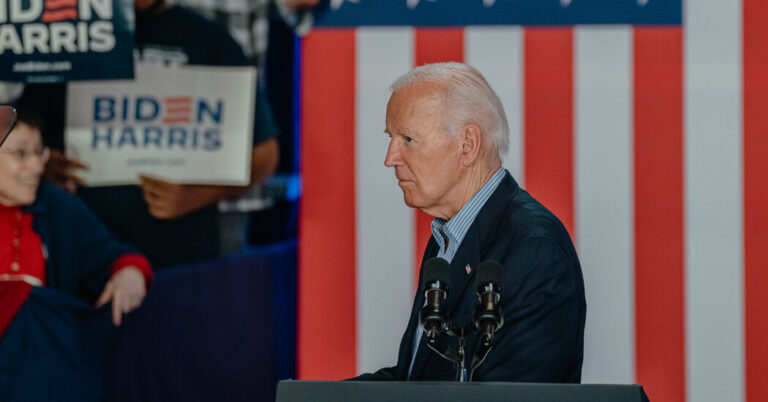Vice President Kamala Harris typically spends the Fourth of July weekend with her husband, Doug Emhoff, at their home in Los Angeles, grilling hot dogs for their Secret Service agents. But as concerns over President Biden’s age and mental acuity have continued to simmer in recent days, Ms. Harris has been on the road, relentlessly defending his record in interviews and before crowds of supporters.
On Saturday, in an appearance at the Essence Festival of Culture in New Orleans, neither Ms. Harris nor her interviewer, Caroline A. Wanga, the chief executive of Essence, mentioned Mr. Biden’s teetering campaign for re-election or the high-stakes interview he gave to ABC News on Friday.
Instead, in a roughly 30-minute conversation onstage, Ms. Harris spoke of her biography, jabbed sharply at former President Donald J. Trump and promoted the Biden administration’s achievements on issues like Black maternal health, student debt and housing.
“Understand what we all know,” she said. “In 122 days, we each have the power to decide what kind of country we want.”
She warned of Mr. Trump’s open praise for dictators, his promise of retribution against his political enemies and the new latitudes of immunity that the Supreme Court had granted him.
These are pivotal moments for Ms. Harris. The intense scrutiny that has befallen Mr. Biden as pressure mounts on him to step aside has begun to make its way to his most likely successor. She had made an early and surprise appearance at the Essence festival on Friday night, walking in to Beyoncé’s “Freedom” after being introduced by the comedian Punkie Johnson.
“Let us always celebrate the diversity, the depth and the beauty of our culture,” Ms. Harris had said to resounding cheers.
Leaders with several progressive organizations and women’s advocacy groups said on Friday that they were working to raise Ms. Harris’s profile and highlight her achievements, regardless of whether Mr. Biden chooses to step aside.
The vice president remains largely undefined in the public, according to their polling, though she and the issues in her portfolio — such as reproductive rights and gun violence — are highly popular with the groups that Mr. Biden seeks to shore up, including women, young people and voters of color.
Mr. Trump and his Republican allies have also escalated their criticisms of Ms. Harris. On his social media site, Truth Social, Mr. Trump described her as his “potentially new Democrat Challenger” and called her “Laffin’ Kamala Harris,” an apparent reference to her laugh.
Leaders with UltraViolet, Emily’s List and other women’s groups released a joint statement denouncing Mr. Trump’s attacks on Ms. Harris, saying that he could not stand to see a Black woman who was smarter, tougher and more respected than he was “getting the praise she deserves for her leadership.”
Ms. Harris’s appearance in New Orleans was part of her efforts to energize Black voters, a constituency vital to Democrats’ success in November. Before she was interviewed onstage, Ms. Harris took photos with members of the Congressional Black Caucus at a booth set up by national Democratic groups to register voters and raise awareness of the Biden administration’s accomplishments.
Despite their high praise for Ms. Harris, some attendees said they hoped the party would stick with Mr. Biden as its presidential nominee.
“I think that he still has a heart to lead this country,” Jeanetta Hawkins, 62, a small-business owner in St. Louis, said of Mr. Biden.
Tiffany Altman, 36, brought along a copy of Ms. Harris’s book “The Truths We Hold” in hopes of getting it signed. Watching Mr. Biden during the presidential debate had been “painful,” she said. But she was crushed when Hillary Clinton lost to Mr. Trump in 2016, and she doubted that the United States was ready for a Black woman in the White House.
The sentiment was a common one, though recent studies have shown that female and nonwhite candidates are winning races at rates that equal or exceed those of their white male counterparts.


